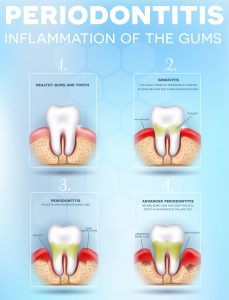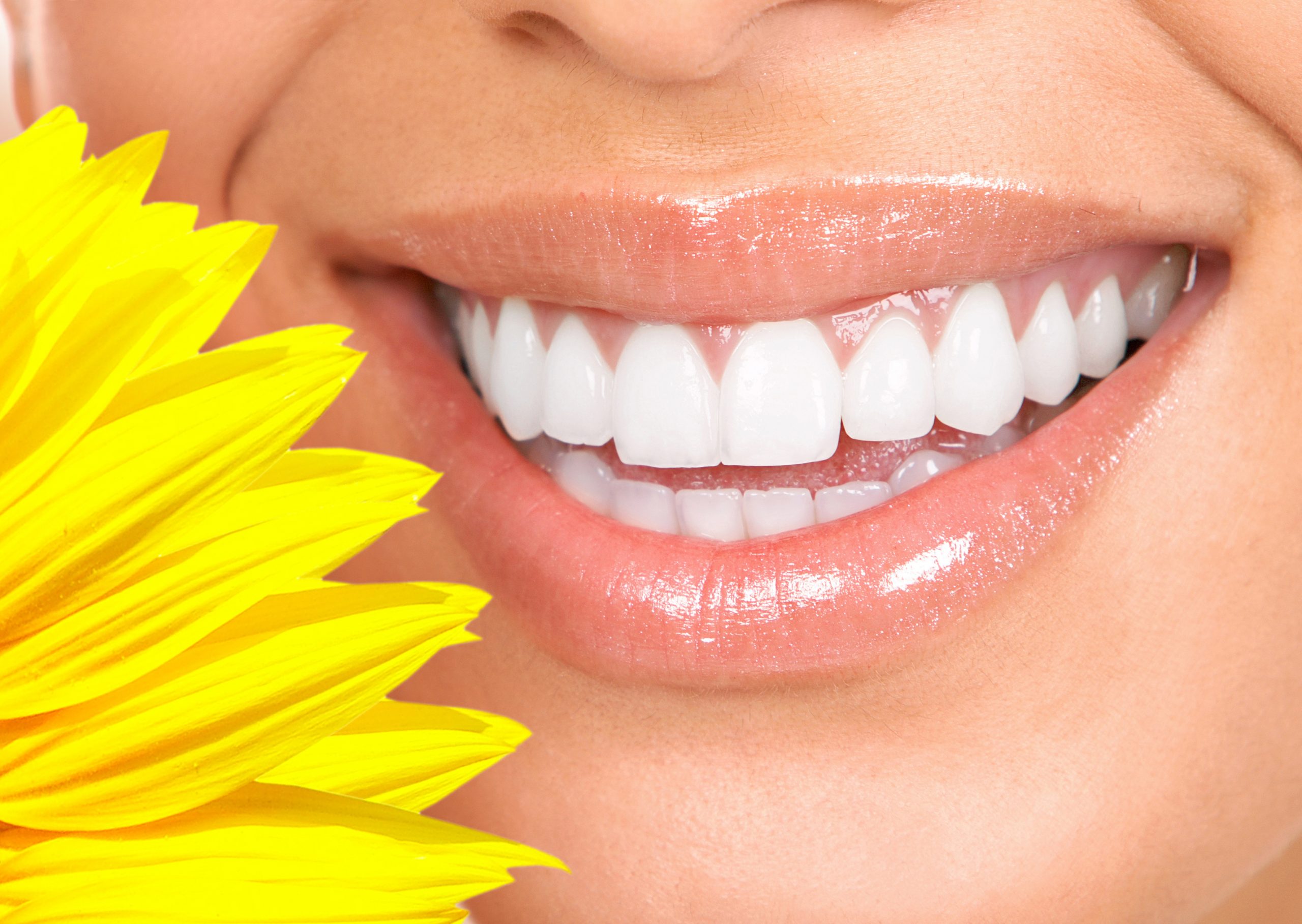 Help support healthy gums and teeth by visiting our office to have an evaluation completed. Gum diseases are those that affect the gums and bone that surround and support the teeth. Early stages of gum disease is more commonly known as gingivitis, which causes irritated, swollen, bleeding gums. Gingivitis is the only stage of periodontal disease that is reversible because it hasn’t attacked the bones yet. As gingivitis progresses to periodontitis, or periodontal disease, the gums begin to pull away from the teeth and the supporting bone begins to deteriorate. Due to loss of support, the teeth may become loose or even fall out. Periodontal disease can also make the teeth more susceptible to decay due to tooth root exposure. Gum Disease is the leading cause of tooth loss in adults.
Help support healthy gums and teeth by visiting our office to have an evaluation completed. Gum diseases are those that affect the gums and bone that surround and support the teeth. Early stages of gum disease is more commonly known as gingivitis, which causes irritated, swollen, bleeding gums. Gingivitis is the only stage of periodontal disease that is reversible because it hasn’t attacked the bones yet. As gingivitis progresses to periodontitis, or periodontal disease, the gums begin to pull away from the teeth and the supporting bone begins to deteriorate. Due to loss of support, the teeth may become loose or even fall out. Periodontal disease can also make the teeth more susceptible to decay due to tooth root exposure. Gum Disease is the leading cause of tooth loss in adults.
A buildup of bacteria in the mouth and surrounding the tooth causes inflammation. When this build up of bacteria goes untreated, the bacteria in the mouth continually produce toxins and it turns from plaque into a harder build up known as calculus or tartar. As the calculus spreads below the gumline, the gum tissue becomes disturbed, resulting in unpleasant effects. Only a dental professional has the necessary devices to remove the calculus build up. Leaving the calculus untreated for too long ultimately results in periodontal disease. Only your dentist or periodontist can determine the profession of gum disease. It is important to see your dental professional regularly to help prevent gum diseases as there has been growing evidence of a link between periodontal disease and complications with the heart, brain, and lungs.
Common warning signs of periodontal diseases include:
- Red, swollen gums that are tender and/or bleeding;
- Loose or sensitive teeth;
- Bad breath that does not resolve after brushing and flossing
Risk factors include:
- Smoking
- Diabetes
- Poor oral hygiene
- Fillings that have become defective
- Hormonal changes
To help prevent or control periodontal diseases, it is important to see your dental professional regularly for cleanings and check-ups. At-home care that includes brushing and flossing twice daily also helps to reduce the risk of periodontal diseases.

